Intense hunt underway north of Hughenden for missing grazier
- Townsville Bulletin
- August 18, 2014
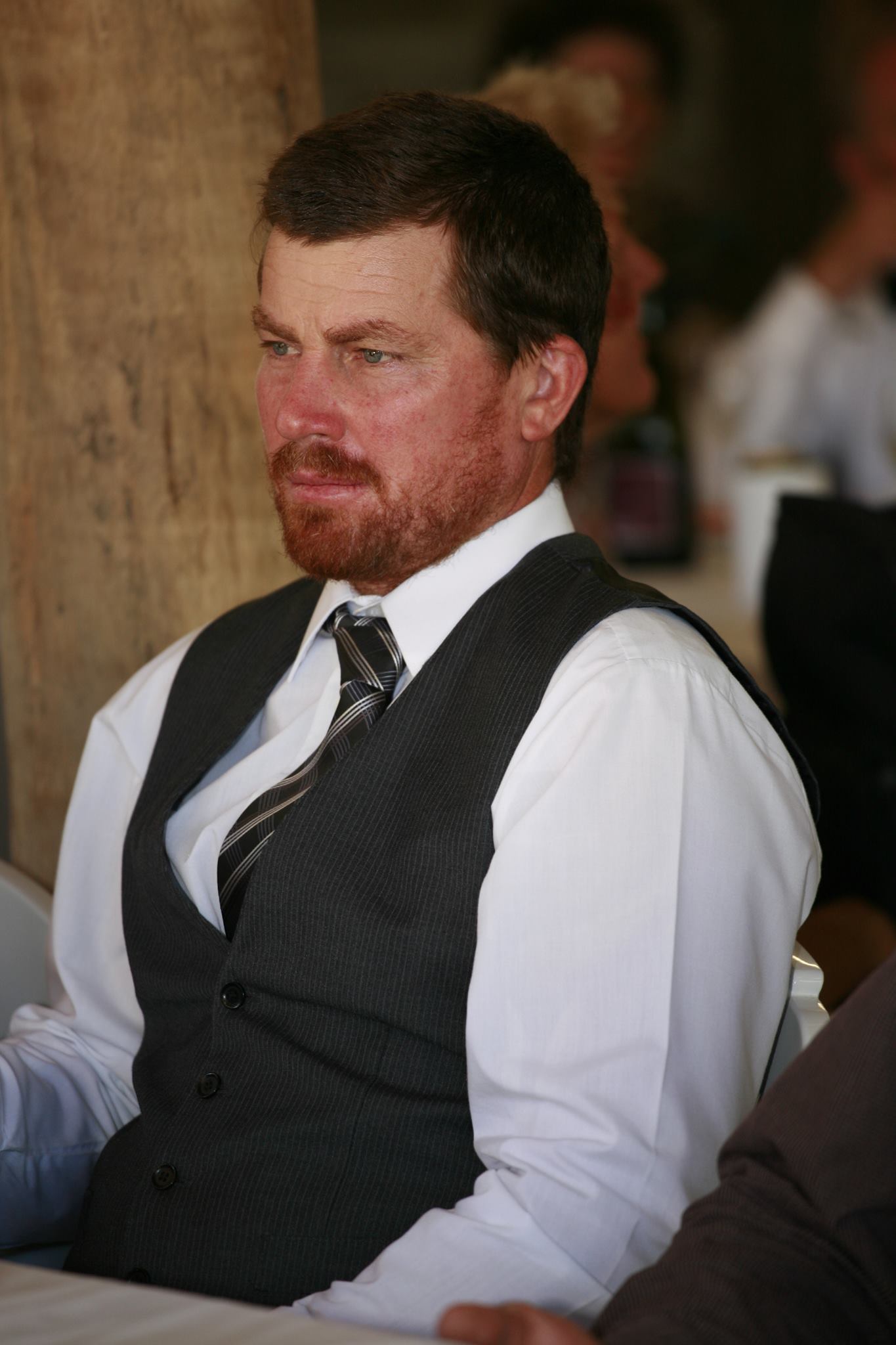
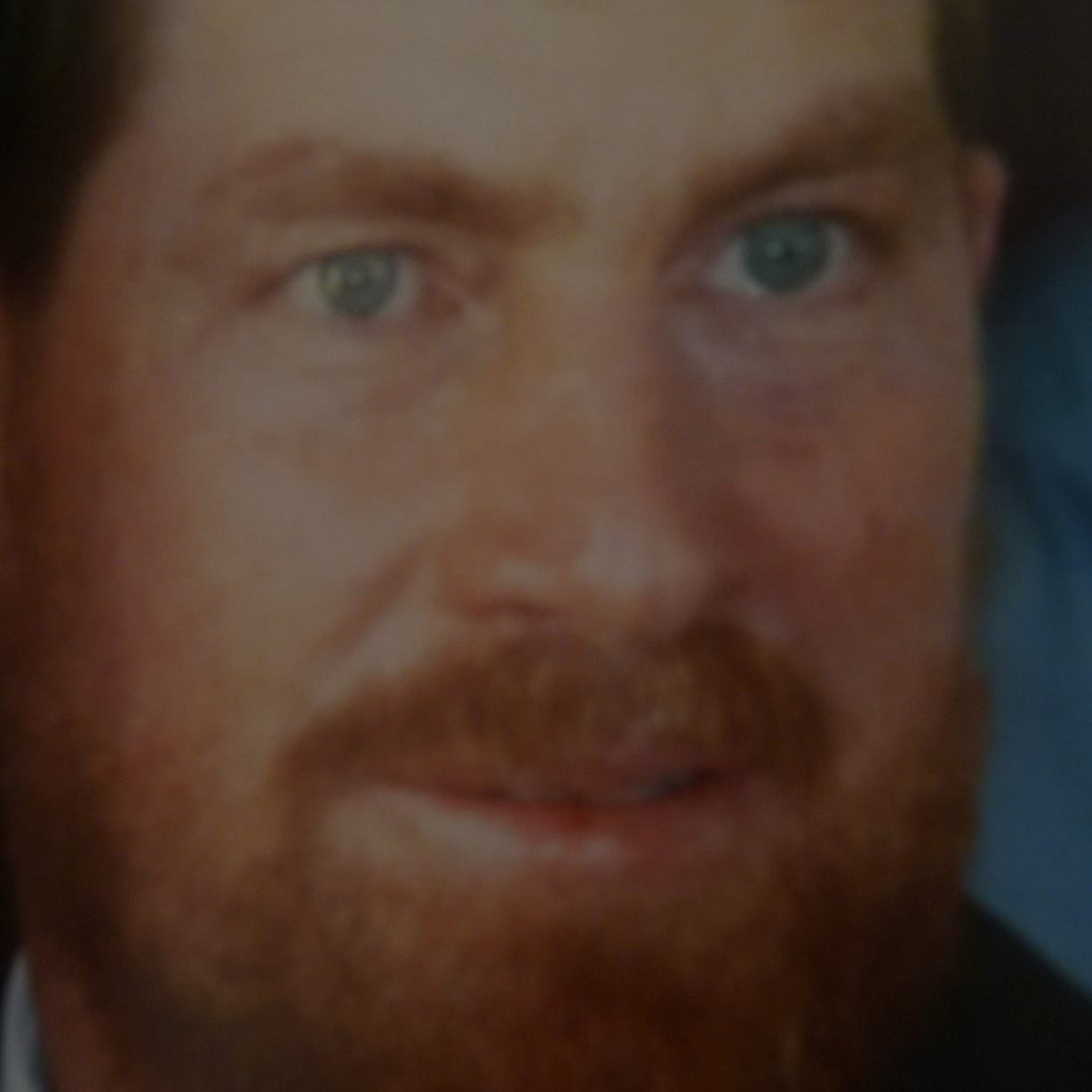
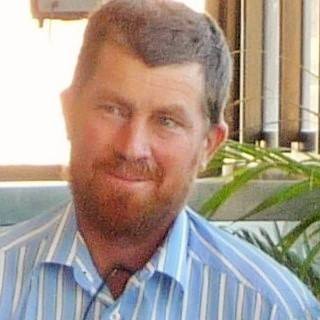
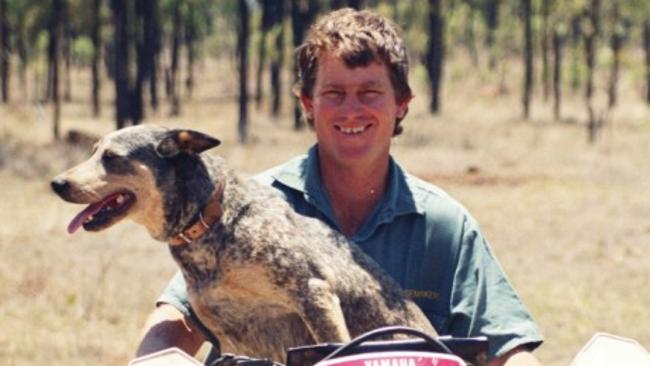
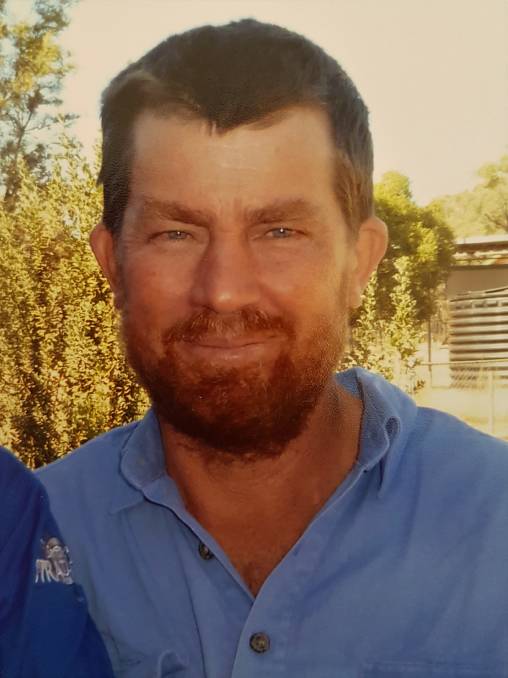
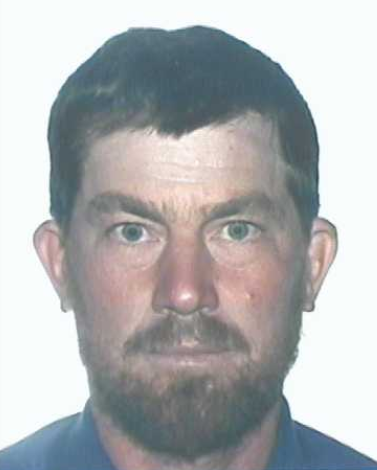
Charles MORTON was alone on a property north of Hughenden when he last spoke to family over the phone on 14/08/14. He could not be contacted the following day and the alarm was raised. Extensive land and aerial searches have failed to locate Charles and there are significant fears for his welfare and safety.
Dozens of SES personnel, police, parks and wildlife rangers, landholders and community members have been sleeping in swags and getting up at first light to search for Charles Morton.
Mr Morton, 46, was reported missing on Friday morning after his wife, holidaying in Germany, was unable to make contact with him on Thursday evening.
Inspector Roger Whyte said rescuers would continue their search of the property today, but hopes were fading.
“We are very concerned for his welfare,” he said.
Insp Whyte said police were also investigating other “signs of life”, such as any movements on his bank account.
But he said there was no evidence to suggest Mr Morton had left the property.
Strathtay Station is about 120km north of Hughenden.
It is a cattle grazing and fattening property dotted with heavy timber forests.
The area received a few millimetres of rainfall over the weekend, so there is likely some water for him to drink, but the early mornings have been cold and frosty.
“We don’t really know what he was up to before he disappeared, but at the end of the day most landowners are reasonable bushmen,” Insp Whyte said.
Mrs Morton made telephone contact with the grazier on Thursday morning but he did not pick up the phone when she made her scheduled call later that night.
She contacted a neighbour who checked the property and called police.
Insp Whyte said Mr Morton was reasonably fit and believed to have set off on foot.
But police could not rule out whether he could also have left on a motorbike or on horseback.
“We had the AusSAR (Australian Search and Rescue) fixed-wing aircraft up, which has heat-sensing equipment, to see if we could spot any campfires or that sort of thing, but unfortunately that proved fruitless,” Insp Whyte said.
“But we will keep trying (to locate him) until we have exhausted all avenues.”
Insp Whyte thanked searchers for their tireless efforts in the tough conditions.
Mr Morton is described as caucasian, about 174cm, with a proportionate build. He has brown hair.
Anyone with information on Mr Morton’s whereabouts can call Crime Stoppers on 1800 333 000.
A man’s voice says you have reached the home of Charles and Kathleen Morton, and you are asked to leave a message.
The voice is that of a missing grazier, who vanished from his 40,000ha property, 120km north of Hughenden, two months ago.
Mr Morton’s wife Kathleen, who was visiting family in Germany at the time of his disappearance, is not ready to delete the recording of her husband’s voice.
She hasn’t given up hope that he will walk through the homestead’s front door.
The couple married five years ago.
She told the Townsville Bulletin the isolated property has been “too quiet” since Charlie disappeared.
“I have no idea what has happened to him. Right now I am just taking it day by day,” she said.
“While I was away we talked morning and night, and texted each other in between.
“There was no indication anything was wrong at all.”
Her voice breaks as she talks about her husband’s disappearance.
Those close to the case say everything points to the couple having a very happy and loving relationship.
Mr Morton was reported missing on August 15 after he failed to answer the phone during one of his scheduled calls with his wife.
Extensive aerial and ground searches at the station and nearby properties failed to find any sign of the experienced bushie.
It was a huge community effort, with SES volunteers, council workers, rangers, police and landholders searching bush tracks, fence lines, dry creek beds, rocky outcrops and timber plantations for days. Infra-red technology used by the AusSAR (Australian Search and Rescue) fixed-wing aircraft also failed to find any signs of campfires, or body heat.
Neighbours have previously told the Bulletin that “Charlie Morton doesn’t just get lost”, describing him as a very capable bushman and station manager with an intimate knowledge of the land.
Police say the case is “as baffling as the disappearance of Mick Isles”.
Ayr Police Senior Sergeant Mick Isles left his Burdekin home to attend a training workshop in Townsville on September 23, 2009, but was never seen again.
His car was found in bushland five days after his disappearance but
there has been no sign of the police officer, with a coroner reluctantly
ruling in 2012 that he had committed suicide.
Mr Morton’s wife, who has never previously spoken about his disappearance,
is at a loss to explain what happened. The drought is often blamed for a
spike in rural suicides, but Kathleen says their property has largely
weathered the big dry.
“The property is still in good shape. It is just completely out of character for him,” she said.
Living on an isolated property can be lonely at the best of times.
When a loved one is missing, and there are no clues to explain why, the silence is deafening.
“If I could say anything to him it would be, please come home,” Kathleen said.
“I miss you immensely and want our happy life back.”
Mr Morton turned 47 yesterday. His mother Ailsa Morton said she was praying he would be found alive “like the woman who walked out of the jungle”. Innisfail mum and cancer survivor Shannon Fraser was lost for 17 days in the rainforest near Golden Hole, a popular waterhole south of Cairns, when she suddenly stumbled out of the forest covered in cuts, welts, bruises and bites earlier this week.
She was found by a farmer and, while she has been traumatised by her ordeal, she was alive.
“He (Charlie) knows the area very well. The only reason he would have got lost was if he hit his head,” Mrs Morton said.
The grazier’s distraught mother said she could not rule out foul play in her son’s disappearance, saying she now believed that scenario was more likely than suicide.
“I am at a complete loss (to explain what has happened),” Mrs Morton said.
“There are just no leads.
“I love him very much and if he does read this, and has just taken some time out for a while, I want him to know we want him home.
“A lot of people want him to come home. He has so much going for him.”
Mr Morton’s younger brother Jamie said the family needed answers.
“You can’t rule anything out. He is in our thoughts constantly and we would really like him to come home if he is out there, or let us know he is OK,” he said.
It is estimated 35,000 people are reported missing each year in Australia, or about one person every 15 minutes.
More than 95 per cent of them are found within a week, according to the Australian Federal Police.
Charters Towers officer-in-charge Acting Inspector Graham Lohmann said police were investigating every scenario in relation to Mr Morton’s disappearance.
“Since day one we’ve kept an open mind and any and all potential causes have been investigated, and are still being investigated,” he said.
“There are any number of scenarios possible, from an accidental mishap to foul play at the hands of another person.
“There is really no evidence to strongly support any particular scenario.”
A SHY ‘bushie’ who vanished from his 40,000ha property in north Queensland seems an unlikely target for an execution-style slaying, but his family believe the past could hold the key to his disappearance.
The Courier-Mail can today exclusively reveal he was once a key police informant in a National Crime Authority (NCA) investigation into the vast underworld tentacles of the ruthless Griffith-based Calabrian mafia in the early 1990s.
As a young man, in his early twenties, he located and told police about a multi-million dollar, large-scale marijuana plantation, run by the Italian mafia, on his isolated property in remote north Queensland.
His testimony, in part, helped put an Italian mafia boss and four other gangsters from a powerful criminal syndicate, known as the ’Ndrangheta, in the frame for between five and ten year prison sentences from the mid-90s.
While the loss of the $8 million crop barely put a dent in the “grass empire” of the blood-soaked Calabrian mafia family dynasties – headed by the Sergis and Barbaros – it did bring down the heat of the NCA on the secretive society.
It was at a time when, in the 1990s, mafia-controlled marijuana was the second most lucrative crop in Queensland behind sugar cane.
Charters Towers police, in a report prepared for the coroner, believe the disappearance of Charles Morton, 46, on August 14, 2014 was due to suicide – another grim statistic in the rural death toll where one farmer dies by suicide every four days.
Detectives claim, in a state of depression, the farmer took a missing bolt-action .22 calibre rifle, walked off into a hidden location, and killed himself.
No body, and no tracks, were ever found.
But the Morton family refuse to accept the expert bushman took his own life.
They’ve written to the State Coroner asking for an inquest to investigate other possible scenarios – including the mafia drug link.
“It’s a baffling mystery,’’ his brother Jamie Morton, of Aramac, exclusively told The Courier-Mail.
“He vanished into thin air. It’s hard to think the Italian mafia had any motive for a revenge killing then or now.
“Why wait 20 years for retribution?
“But we can’t rule it out.’’
He told how his brother gave evidence in Townsville Supreme Court about the 4000 marijuana plants and the bush camp he’d found in a remote corner of the station while checking cattle and fences on August 30, 1991.
“It was not like he “ratted-out” the mob,’’ Mr Morton said.
“Charlie never pointed the finger or testified against anyone. He just told the cops and the court about a marijuana crop in the bush.
“But the big question is: Is that enough to get someone bumped off twenty years down the track?”
Retired Mafia godfather, Pasquale “Peter” Barbaro lived a remarkably quiet and nondescript life in the Brisbane suburbs until, like his slain grandson who was also a police informant, hitmen came calling.
Police believed the execution had to do with Barbaro spilling his guts to the National Crime Authority in 1989 in secretly recorded interviews about mafia murders and the large scale cultivation of marijuana in remote areas of Queensland and NSW.
Assassinating outsiders is almost always bad for business. The old school ’Ndrangheta, known as the Black Hand on the cane fields of the deep north, robbed, extorted and terrorised, but usually took care to kill only its own.
That all changed on July 15, 1977, when 43-year-old anti-drugs campaigner and Liberal Party activist Donald Mackay, of Griffith, was killed on ’Ndrangheta orders for supplying police with information about mafia cannabis crops.
His body has never been found.
The ’Ndrangheta has a notoriously dim view of police informants.
The fight over profits from the multi-million dollar cannabis trade – trucked to fruit and vegetable markets in Brisbane, Sydney and Melbourne – also triggered a number of ’Ndrangheta hits in north Queensland.
In 1981, the charred bodies of William Paul Clarke and his wife, Grayuyda Maria, were found in their torched house in Julatten, near Mareeba.
Known to be contract marijuana growers for “the Italians”, the couple had been blasted in bed with a shotgun.
The suspected killers and ’Ndrangheta members Rocco Francesco Medici and Giuseppe Louie Furina were themselves executed three years later, their bodies tossed in the Murrumbidgee River near Griffith. Medici’s ears had been cut off.
The Strathtay Station drug bust, involving 10,000 marijuana seeds, was the biggest in Queensland at the time.
Mafia kingpin Rocco “Roy” Sergi, Rocco Trecasse, his son Sam Trecasse, all of Griffith, Mario Pangallo, Lorenzo Giufre, and William Hinkle, of Brisbane, were all named in court in relation to the case as a result of the NCA investigation.
Those who are still alive would today be aged in their late sixties to eighties.
An Australian Crime Commission spokeswoman said: “I’ve had a chat to some of our staff who were at the National Crime Authority in the 1990s. It’s their understanding the report you refer to is classified. We also wouldn’t comment publicly about a particular person.’’
Morton’s family has asked the coroner to explore three possible scenarios: the mafia drug link; suicide; or that he simply walked away from his $5 million cattle station and started a new life in an unknown location.
“He had no financial stress, there was also no undue drought stress on him, his country had grass and his cattle were in good condition,’’ Jamie Morton said.
“We believe the police have written it off as a suicide because that is the easiest option.’’
His brother’s life was on the land, working cattle, riding horses and motorbikes, and checking on stock, water and fence lines on the vast, rugged sandstone escarpment country of his isolated property in the wilds of the White Mountains.
Charlie was not “gun happy”, unlike many other bush boys who hunt for fun, and he rarely used any of his small arsenal of rifles except to shoot the odd dingo, wild pig, or a “killer” steer to be butchered for meat.
He did have his odd beef with the various coal and gold mining exploration companies that came onto his property unannounced, setting up camps, leaving gates open, and drilling for core samples. But that’s the lot of many graziers these days.
Four years before he disappeared into thin air he’d married his German backpacker wife Kathleen, a former law student.
They newly married couple had a bitter, acrimonious fallout with his family, who’d moved off the family property after Kathleen felt ostracised by his mother Ailsa, brother Jamie and sister-in-law Tania, also German, who’d introduced the pair.
His mother Ailsa Morton, 78, believes a coronial inquest will “open up a hornet’s nest” saying there are “too many unanswered questions”.
It’d be fair to say, the marital situation was strained. It’s tough when it’s just the two of you – with the help of the odd worker – to run a 400 square kilometre cattle enterprise in the middle of nowhere.
For Kathleen, it was a big adjustment to move from Germany to the lonely, sun-drenched outback where the nearest neighbour is 20km away.
Every year she’d travel back home for ten days to check on a small unit she owned and to catch up with family.
She was overseas and reported him missing on August 15, 2014 when he failed to answer the phone during one of his scheduled calls.
She said she had no inkling of any death threats but there was also no sign her husband might have committed suicide.
“I don’t want to say anything about the mafia or the drug crop. If I do, and it’s true, what’s to stop them coming after me?
“I’m hoping that he is still alive, that he will come back, one day walk back through the door.
“It’s hard to know what to think.”
He’d been home alone. His working dogs were all tied up. The chooks had been left out, and the sprinkler was on.
The house was unlocked. No vehicles were gone.
There was an empty coffee cup on the dining table and another in the sink. There was no evidence of violence. No suicide note. But a .22 rifle was missing from the gun safe. And, strangely, keys were missing from some motorbikes, work utes, the bobcat and a loader.
Rain had washed away any trace of fresh tracks around the homestead. There was also no sign of foot tracks in sandy creek beds.
For days, SES volunteers, council workers, rangers, police and landholders scoured bush tracks, fence lines, dry creek beds, rocky outcrops and timber plantations.
Fixed-wing aircraft using infra-red technology also failed to find any signs of campfires, or body heat.
Charlie Morton quite simply vanished off the face of the earth.
AILSA Morton believes her son Charles, who vanished without a trace from his NQ cattle station four years ago, is still alive.
GRIEVING mother Ailsa Morton is reaching out for any news of her son Charles who vanished without a trace from his Hughenden district cattle station four years ago.
Charles Morton, then aged 46, disappeared from Strathtay Station 120 kilometres north of Hughenden on August 14 2014.
Charters Towers police in a report prepared for the Coroner believe Mr Morton walked off to a remote part of the station where his body could not be found and committed suicide.
Police based this on the evidence that a bolt action. 22 rifle was missing from the station gun safe.
What can be inferred from what police have said is that Mr Morton did not want his body to be found.
Instead he left on foot carrying the rifle rather than leaving in a vehicle which would be easily found and which could lead searchers to a body, no matter how well concealed in a cave or rocky crevice.
With no tracks to follow it was as if Mr Morton had disappeared into thin air.
His disappearance was investigated and finalised in the northern Coroner’s Court on May 2 this year.
No witnesses were called and the investigation did not proceed to inquest.
A court spokesperson said the findings would be made available to the immediate family, but not to the public.
Ailsa Morton believes her son is still alive.
This week she placed an advertisement in The Northern-Miner newspaper in Charters Towers pleading with him to contact her if he was still alive or for any member of the public who knows what happened to get in touch.
Mrs Morton said her son would have turned 51 on October 10 this year.
“As his mother along with everyone who knew Charles, I cannot envisage him taking his own life, but this is what police believed based on a missing rifle,” she said.
Mrs Morton said someone may have seen him if he had simply “walked away” to find another life for himself.
She said he was exceptional bushman and would not have become lost on the station.
There has been much speculation over Mr Morton’s disappearance. In 1991 he stumbled across a marijuana crop he found growing on his property.
He reported the finding of the crop to police and 4000 plants were seized.
This led to one theory that he was ‘taken out’ by underworld figures for reporting the crop.
But, this scenario was not given serious attention due mainly to the fact that he only reported the finding of a crop and was not in a position to name names or to provide detailed information that would get people arrested and put in jail.
He had no other knowledge of the crop apart from the fact it was growing on Strathtay. Police felt he had not made himself a target of organised crime.
The Townsville Bulletin spoke to his wife Kathleen this week. They had been married for five years and she was holidaying in her home country of Germany when he disappeared. She said this week that they were very much in love.
She doesn’t know what happened, but doesn’t believe he would simply walk away from her and the station and start a new life from scratch.
“He wouldn’t stay away. We were in love. I don’t know what happened,” she said.
Mr Morton’s mother said both she and her son Jamie, Charles’s brother, missed him and loved him.
“We miss you every waking minute. We love you and just want to help you. It is getting harder for us, wondering where you are and not knowing what happened,” Mrs Morton said
Most mothers who have lost a son can visit their resting place and attribute the circumstances of their loss, but four years after her son went missing, Hughenden’s Ailsa Morton still lives in a vacuum of uncertainty and concern.
All she knows is that her son, Charlie Morton, then 46, disappeared from the 40,000ha Strathtay Station, 120km north of Hughenden sometime in the late afternoon or evening of August 14, 2014.
The sprinklers were still running on the lawn when neighbours went over the following morning, alerted by a phone call from Charlie’s wife Kathleen, visiting family in Germany at the time.
The back gate was open and chooks were scratching in the garden, and Charlie’s leather coat was still on its peg, despite the coolness of the late winter’s nights.
Police were called in on the morning of August 15, beginning 10 days of
extensive air and ground searches involving SES volunteers, council workers,
rangers, police and landholders searching bush tracks, fence lines, dry creek
beds, rocky outcrops and timber plantations.
Infra-red technology used by the AusSAR (Australian Search and Rescue) fixed-wing aircraft also failed to find any signs of campfires or body heat.
Charters Towers police concluded, in a report prepared for the coroner, that Charlie walked off to a remote part of the property and took his own life, based on the fact that a bolt action .22 rifle was missing from the gun safe.
Today, Ailsa continues to rack her brain for answers.
She doesn’t accept that he would have committed suicide, saying that it wasn’t in his character.
Nor does she feel that he somehow got lost, saying that he had mustered so much of the basalt country from Robin Hood Station through Clark Hills and all the area surrounding Strathtay.
“Like his father, he was an exceptional bushman,” she said this week to Fairfax
Media, in a message she hoped would reach Charlie.
“Everything goes through your mind,” she said, commenting that a shower of rain
early on the morning of the discovery that Charlie was missing had made it
difficult to conclude anything from tracks.
“If someone had come in – they could have come in on a helicopter – and you'd have no way of seeing, if someone did have intent,” she added.
“Helicopters are common in that area, they're coming around all the time.
“You get to a stage of thinking. As far as I can see, he just disappeared.”
One of the theories surrounding Charlie’s disappearance is that underworld figures “took him out” following his 1991 reporting of a marijuana crop on the property to police.
As he could only show police a location, not any names associated with the crop, this wasn’t taken seriously.
Ailsa’s voice broke as she acknowledged unresolved tension between herself and her daughter-in-law, Kathleen.
“I abided by her request not to visit,” Ailsa said. “Now I think...he needed some quiet time and he'd walked out.”
In that vein, not going to Strathtay as soon as she heard Charlie was missing is something else she now regrets.
“I'd already rung my other son, Jamie,” she recalled. “He was there by half past four in the afternoon. It probably wouldn't have made any difference if I'd gone but you just might have picked up something that others might not have.”
She described her older son as quiet until you got to know him.
“He was a larrikin underneath, very sincere, considerate, a caring person,” she said. “He didn't want conflict, he wanted to keep things on an even keel.”
Ailsa said in her message to Charlie that if he’d found it too hard on his own, cut off from family and friends, and just walked away to find another life for himself, somebody may have seen something that would trigger an answer to what may have happened.
“If this is you, please contact the Townsville police with your information,” she said.
“Charlie, Jamie and I miss you every waking minute. We love you and just want to help you.
“As time goes by, it is only getting harder for us wondering where you are and not knowing what happened.
“If this is the same for you, we are always there for you.”